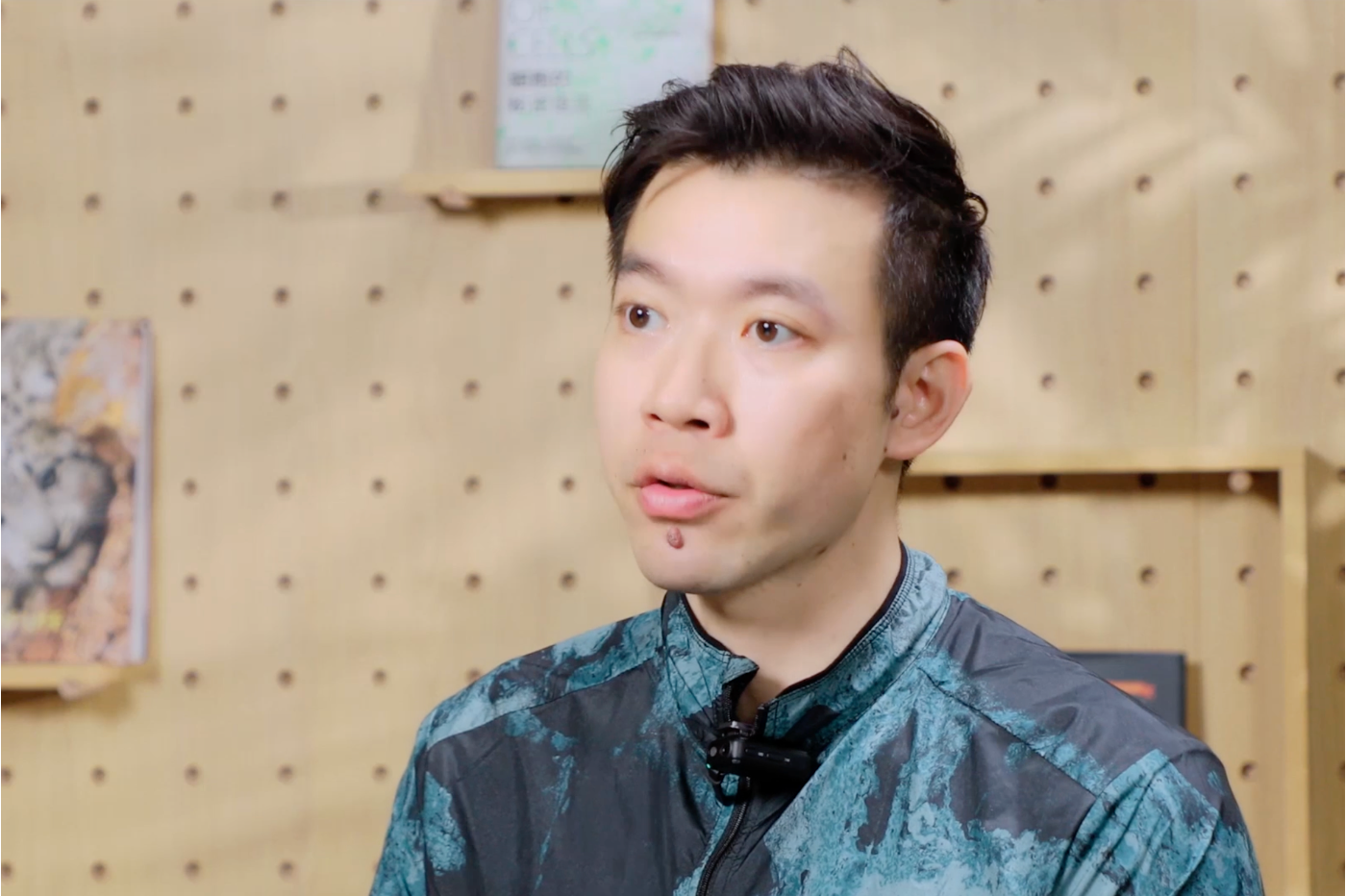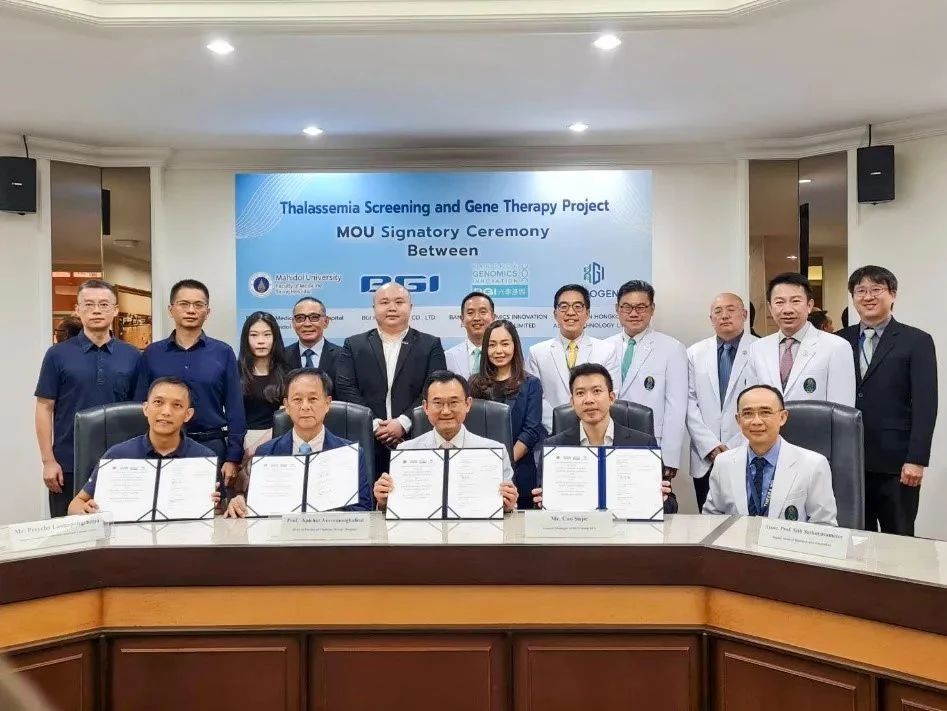BGI's cooperation with Southeast Asian countries has a long history, notably the partnership with Thailand, which has lasted for 20 years. In recent years, BGI Group has actively carried out cooperation in the field of life sciences in Southeast Asia, which is committed to promoting genetic technology for the benefit of humanity.
Today, Cao Sujie, the Southeast Asia Regional General Manager of BGI Group, joins us to discuss BGI's recent developments in Thailand and Southeast Asia.
 Cao Sujie, the Southeast Asia Regional General Manager of BGI Group
Cao Sujie, the Southeast Asia Regional General Manager of BGI Group
Q: When you first arrived in Southeast Asia, what was the state of development in the field of life sciences there?
Cao Sujie: When I first arrived in Southeast Asia in 2015, I found that the overall infrastructure for scientific research was relatively underdeveloped. There was a lack of understanding of how to apply high-throughput sequencing technology and genomics in various fields.
Accordingly, our goal has been to assist the region in building its technical capabilities, scientific research capabilities, talent training systems, and others, by establishing cooperation with the entire local society. This is a process of bringing BGI's mission, technology, and platforms to the local area, as well as making friends with local partners. These partnerships are truly helping the entire industry move forward.
Q: What are the main areas of BGI's cooperation with Southeast Asian countries at present?
Cao Sujie: The first is the building of core capabilities. BGI's cutting-edge technologies and tools in genomics, cell omics, and spatiotemporal omics have successfully helped several Southeast Asian countries to build multi-omics platforms. I am very pleased to see the implementation of BGI's capabilities and gratified that we can participate deeply in the construction of the life science ecological system in Southeast Asia.
The second area is the improvement of the medical service system. Simply having tools does not necessarily equate to the capability to complete the entire testing process. In this sense, we have collaborated with local partners in different countries to establish sequencing service platforms and medical testing platforms and have introduced BGI's advanced omics technology to the local areas. This has rapidly enabled local testing services, and accelerated personnel training, qualification certification, and standard setting. In the process of establishing the service system, we can observe that the local capabilities are getting stronger.
 In July 2023, Cao Sujie (second from the right, front row) participated in signing a memorandum of understanding between BGI Genomics, the Faculty of Medicine Siriraj Hospital at Mahidol University, Bangkok Genomics Innovation, and Hemogen Hongkong Alpha Technology to improve the prevention and treatment of thalassemia and to foster joint cooperation in cell and gene therapy.
In July 2023, Cao Sujie (second from the right, front row) participated in signing a memorandum of understanding between BGI Genomics, the Faculty of Medicine Siriraj Hospital at Mahidol University, Bangkok Genomics Innovation, and Hemogen Hongkong Alpha Technology to improve the prevention and treatment of thalassemia and to foster joint cooperation in cell and gene therapy.
Q: Can you provide examples of how BGI's "Omics for All" vision is being implemented in Southeast Asia?
Cao Sujie: For instance, in the realm of scientific research, let us consider Singapore. As a developed country in Southeast Asia, Singapore possesses strong research environments and capabilities. Therefore, we have established ultra-high throughput sequencing platforms and spatiotemporal omics platforms in Singapore, providing strong support for the development of scientific research projects in Singapore and the Asia-Pacific region.
For public health, in countries with a high incidence of thalassemia, such as Thailand and Indonesia, we have partnered with local partners to create a "screening, diagnosis, and treatment" closed-loop solution for thalassemia, committed to significantly intervening in this rare disease. Additionally, we have launched large-scale cancer screening projects in Thailand, Indonesia, Brunei, and Vietnam, including breast cancer, cervical cancer, and colorectal cancer, to support local cancer prevention and control efforts.
In agriculture, we are cooperating with Thailand, Vietnam, and Laos in the cultivation and promotion of perennial rice, helping to drive local agricultural innovation and sustainable development.
At the same time, we are also actively expanding cooperation in talent cultivation, strengthening education and cultural exchanges with Southeast Asian countries, and jointly cultivating more interdisciplinary talents in the field of life sciences.
Q: 20 years ago, BGI established ties with Thailand through an international humanitarian rescue effort. Today, Thailand and BGI are working together to promote testing technologies and services related to diseases such as thalassemia and colorectal cancer, benefiting the Thai population. What is your view on the cooperation between BGI and Thailand?
Cao Sujie: Thailand, as a tourist country, boasts a strong international background, including a wealth of international hospital resources, and its medical services are well-developed. BGI, on the other hand, has strong scientific research and technological capabilities. This creates a great synergy for cooperation between the two sides.
Looking to the long term, how can Thailand strengthen its overall science and technology system? How can it leverage genomics to empower the development of healthcare and other areas? Can the nation continue boosting its talent training? These are areas where we can offer support.
Q: What do you think is the significance of the BKGI model for other developing countries?
Cao Sujie: In terms of medical testing services, BGI Genomics distinguished itself in Thailand by being the first company to offer the non-invasive prenatal test under the brand "NIFTY," which now commands the largest market share in Thailand. Additionally, we launched a thalassemia screening program last year, delivering substantial benefits to the Thai populace.
The realization of these initiatives would be hard to imagine without our local joint venture, BKGI. This venture has been particularly meaningful for BKGI as well, as it has enabled the team to learn to master the tools and technologies, rather than simply having them.
Beyond Thailand, BGI is pursuing joint venture or partnership models in countries such as Brunei, Indonesia, and Saudi Arabia. I believe that this model of cooperation holds instructive value for the efforts toward localization in many developing countries, serving as a blueprint for integrating advanced technologies and fostering mutual development.



